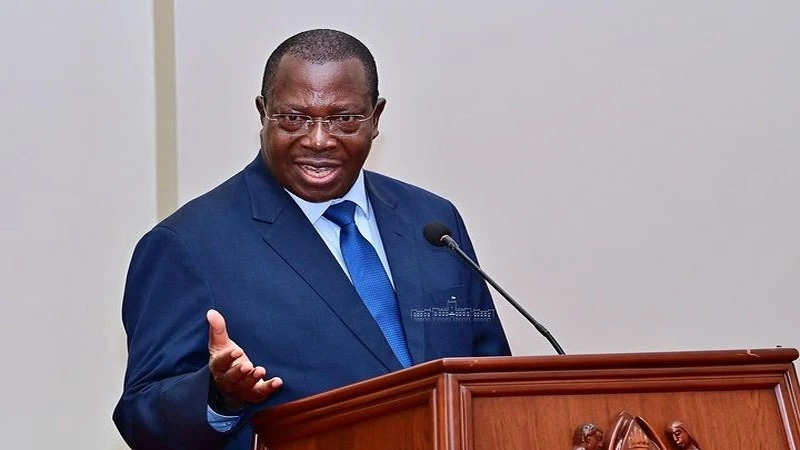Growth in mobile money accounts in flat curve hilt

IT is normal in business to experience periods of boom, stagnation or worse. For less developed or less dynamic economies it is often less more stagnation that is noticed.
The problem is that market or property mechanisms for igniting growth are almost always shut out or grossly inefficient, blocking room for take-off by means of individual innovation or risk taking.
That situation is right now by and large being broached in what policy makers say is the building of a digital economy.
It is well known in economic history that definite tools of economic activity are tied with specific uplift of production and productivity. For instance, the steam engine facilitated the industrial revolution, while the diesel engine enabled rapid modernisation.
But it was automation that touched off globalisation, where markets are no longer defined by national boundaries and demand levels across borders, etc.
This has largely reached its limits especially with robots, such that globalisation is being rolled back to defend jobs.
What is however at issue is that consumption patterns are not checked by the threats rising in the globalisation outlook, and seeking to maintain such patterns soaks different countries into chaos.
Meanwhile, there are false hopes or unmet opportunities tied up with robotic communications, where everything is done with a handset.
The corollary to that situation is that ancient systems of monopolies keep out large numbers of people off jobs. They don’t need them, largely thanks to automation, and keep out competition that could offer jobs.
It may take a bit of time to notice the plaudits now heard in relation to rapid progress in the creation of mobile money accounts, which regulatory sentiment has it that digital payment systems are becoming a pillar of economic activity.
A recent status report compiled by the Tanzania Communications Regulatory Authority (TCRA) for April-June 2024 says that mobile money accounts almost doubled in five years, with a five per cent increase in the past three months.
The growth curve since 2019, where the statistical record provided starts, is just about as decidedly noticeable as it is visibly slackening.
Moving from 25.8 million mobile money accounts in June 2019 to 52.8 million in June 2023 and 55.5 million in June 2024 does not show promise for much further growth in future.
The take-off stage to mobile money accounts has been done, while the next stage is how far these facilities can efficiently be used for economic transactions, including helping to foster mobile shopping by listing goods, paying a store (midway between a regular shop and a supermarket).
When it comes to the methods enabling a digital economy, there is no doubt that we have made all the preparations we need.
Trouble is that innovation and market impact associated with digital tools will be limited, as take-up capacity for capital and innovation remains limited owing to lack of competition in a wide array of sectors.
Only if there are some major companies that aren’t protected as well as competing subsidiary institutions as in the financial sector can things work.
Construction is also dynamic, just as is industry, while the credit aspect cripples agriculture – with the scale limited and markets cramped by the need to observe property rights.
Top Headlines
© 2024 IPPMEDIA.COM. ALL RIGHTS RESERVED

















